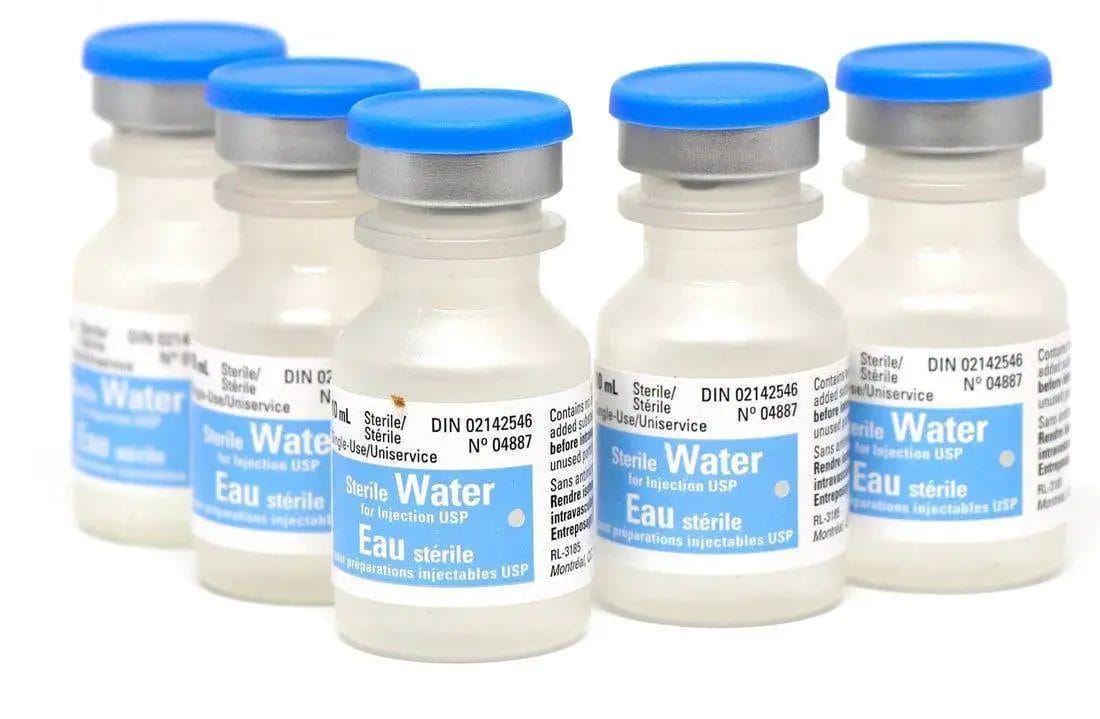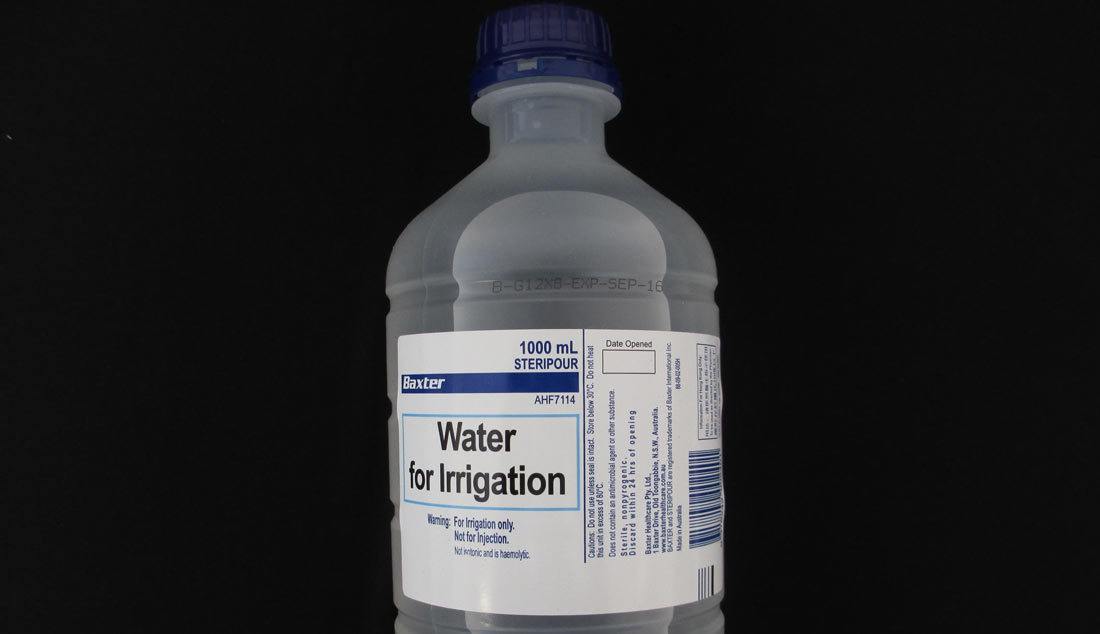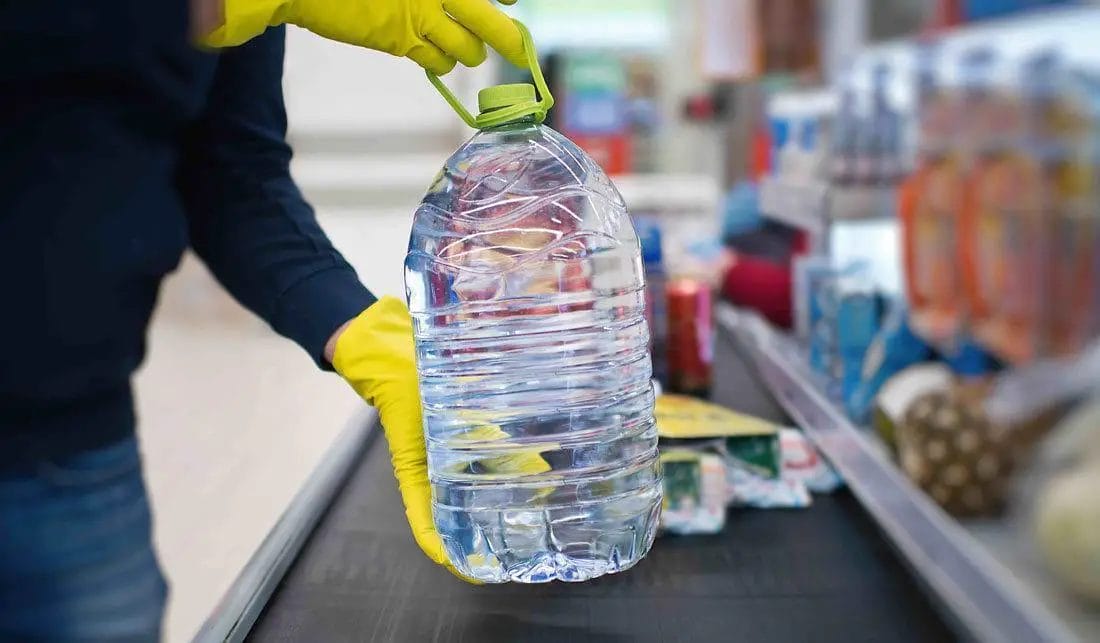Water is one of nature’s gifts and an essential part of our survival. But drinking water filled with contaminants and germs is detrimental to your health. So how can we ensure our water is safe?
Sterilization of water is one of the safest ways to ensure our water intake is pure. This is because often, we are not sure of the purity of our tap water. In many cases, tap water is filled with bacteria, pathogens, and other pollutants.
Sterilizing our water will help prevent these pollutants, and we are going to show you how to make sterile water.
What is Sterile Water?
Sterile water is of high-quality water that does not have contaminations. This means contaminants such as bacteria, protozoa, viruses, etc., cannot breed in them. Sterilized water plays a vital role in medicine because it lacks contaminants that can render lab tests invalid. For this reason, sterile water is precious in medical research.
Sterile water can also be used for mixing infant formula, to dilute water-soluble drugs for injection, and for people that have compromised immune systems.
What is Sterile Injection Water?

Sterile water for injection, USP is a sterile, non-pyrogenic, prepared in a solute-free way and used for injections. Sterile injection water has zero bacteriostat, antimicrobial agents, or added buffer. It functions as a single dose injection after mixing with the right solute or solution.
Clinical Pharmacology
Using sterile water as a drug focuses on the application of fluid, which is replaced after additives have been introduced into the system until the system is saturated with the liquid. Sterile water also serves to transfer suitable medications into the system.
Indications and Usage
Sterile water for injection can be used as diluent or solvent for the preparation of other parenteral drugs. So, it assists in hydration when given in parenteral drugs and fluid therapy when additives and mixtures have been introduced to it to approximate isotonicity.
Contraindications
Do not administer without adding a solute.
What is Sterile Irrigation Water?

Sterile water for irrigation is water sterile, distilled, non-pyrogenic used for sterile irrigation, rinsing, washing, and dilution purpose. Sterile irrigation water contains zero bacteriostatic or antimicrobial agent and is used for only a single dosage.
Clinical Pharmacology
Sterile irrigation water performs cleansing actions of the body cavities, tissues, surgical drainage tubes, and indwelling urethral catheters. It also serves for washing, rinsing, and soaking surgical dressing, equipment, and laboratory specimens. Sterile irrigation water is also a vehicle for drugs used for irrigation.
Indication and Usage
Sterile irrigation water is used for general irrigation, rinsing, washing, and dilution purposes.
Contraindication
It should not be used for injection through the usual parenteral routes.
How to Make Sterile Water

Making sterile water is quite easy. The most common ways of making sterile water are:
- Boiling method
- Chemical method
Boiling Method
This is one of the most effective methods of making sterile water. To make sterile water, you can use either a clean pan. Pressure cooker hermetically sealed pot or even an autoclave. But just make sure that the temperature rises above the normal water boiling point.
So, to begin, add water clean, preferably filtered water into the pan. You can filter your water using a carbon filter or a reverse osmosis machine that has a 0.2-micron filter.
Then place the water on a heated stove. Ensure the pan is covered, then boil the water for at least 20 minutes.
Ensure that the cooker’s temperature is maintained at 121 degrees C or 250 degrees F throughout the boiling point.
After doing that, your sterile water is ready. You can use your water immediately after cooling, or just pour it in a sterile container. Never cool your sterile water with ice.
Chemical Method
This method involves adding chlorine bleach in the water. This is very handy when you want to sterilize a baby’s bottle, and you are in an emergency or when it is difficult to boil the water.
To sterilize your water using chlorine, pour water into stainless steel and add water into it. Then, add chlorine into it- about four teaspoon measurements to 30 gallons of water.
Mix the solution and leave it for 30 minutes. Then wait to perceive the smell of the chlorine. If you perceive the odor, then the water is sterilized. But if you don’t, it means you should repeat the entire process.
How to Make Sterile Saline
To make a sterile solution, you will need the following:
- Sterile water
- Non Iodized salt
- Mixing utensil
- An airtight container for storing it
To Make 8 Ounces of Sterile Saline
To make 8 ounces of sterile saline, add 8 ounces of sterile water and ½ level teaspoon salt(non-iodized) and stir it together until it dissolves completely. After that, pour the mixture into a sterile storage container, write the date of production, and keep it in the refrigerator.
To Make 16 Ounces of Sterile Saline
Making 16 ounces of sterile saline is the same as making that of 8 ounces, except that you have to mix the 16-ounce sterile water with 1 level teaspoon of non-iodized water.
Tips for Making a Sterile Solution
After three days, pour away the water, sterilize the container again and make another sterile saline. When collecting saline water, do not dip anything into the container, even a syringe. Better still, pour some into a clean container, and collect it by putting the syringe into the container. Keep germs away from the sterile water and sterile saline. Always wash your hands thoroughly before use.
What is the Difference Between Distilled water vs. Sterile Water?

Often, people confuse distilled water for sterile water. So, help to draw a line between these two, here are the main differences.
Sterile water is characterized as free from bacteria, fungi, and spore; this means bacterias will not be able to produce in them. Distill water is made through the process called distillation, so it is free from most contaminants.
How to Make a Saline Solution at Home
A saline solution is a mixture of water and salt. It is also known as normal saline because its combination of water and salt is similar to that of tears, blood, and other body fluids. Another name for it is an isotonic solution. A normal saline solution does not sting or burn when applied.
Making a normal saline solution at home is quite easy. To begin, here are the materials that you require.
- A glass bottle with lid
- Table salt
- Pot with lid
- Water
Add a cup of water and ½ teaspoon of salt into a pot and cover it with the lid. Set the heat and boil the mixture for 15 minutes. For accurate timing, you can use a timer. After boiling, remove the pot and allow it to cool to room te[erature. Then, pour the solution into a jar and cover it with a lid.
Tips for Preparing a Saline Solution
While preparing your normal saline solution, always use fresh salt to avoid bacteria from growing in the saline, resulting in infection. Use a sterile jar to store your saline solution. When your solution grows cloudy or has a dirty look, throw it away. Store your saline solution for a maximum of 24 hours. Dispose of any remaining solution, wash the container, and make a new one if required.
Making Sterile Saline For Wound Care
How to Make Sterile Water FAQs
Can You Drink Sterile Water?
Is Boiled Water Sterile?
Is Sterile Water the Same as Saline Water?
How Long Does Boiled Water Stay Sterile?
If it is kept in the refrigerator, it can stay sterile for 2-3 days. But boiled water can remain sterile for 24 hours when kept at room temperature.
Is Bottled Water Sterile Water?
Conclusion
Sterile water has vast purposes, whether for daily use or clinical functions. It is one of the necessities in homes and other medical bodies. But who knows that making sterile water could be this easy. Now you know how to make sterile water; fortunately, the methods are easy. Also, ensure to indulge the tips in ensuring your sterile water is free from contaminations and germs. To use your sterile water for injection purposes, you have to ensure your water is extra sterile.
Sarah J. Gregory
352 Hershell Hollow Road
Anaheim, CA 92805






